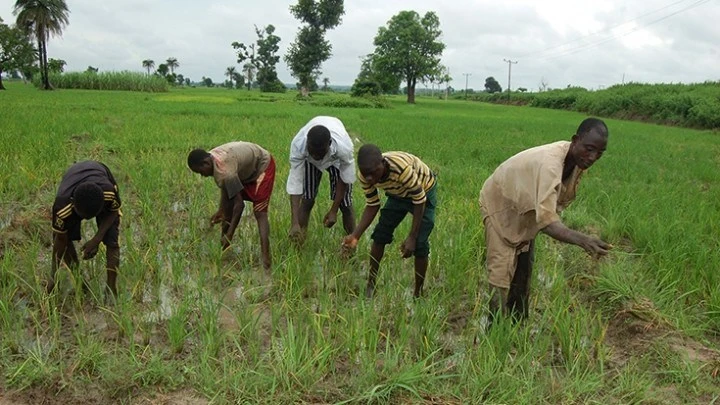To help the agriculture industry in Africa undergo digital transformation, the International Finance Corporation (IFC) and Microsoft have teamed.
The IFC and Microsoft, working together through the Africa Transformation Office (ATO), presented their partnership to assist the digital transformation of Africa’s agriculture sector during a discussion on Adaptation and Agriculture Day at COP27 in Egypt.
In a joint statement, IFC and Microsoft emphasized that their relationship is supplying digital agriculture technologies to help African agribusinesses improve their food security and climate change resilience.
“The partnership makes digital tools and training resources more accessible to small-scale farmers and agriculture-linked small businesses.
“Through the partnership, digital tools such as Microsoft’s AgBot and Community Training applications are integrated with IFC’s Agribusiness Leadership Programme to provide better information, newer technologies, and management capacity training to agribusinesses, farmers and cooperatives,” they noted.
Henrik Elschner Pedersen, IFC’s Director for Manufacturing, Agribusiness, and Services in Africa, stated: “Digital technology can improve the operation of key supply chains in the food system by increasing production, enhancing business procedures, promoting traceability, and expanding access to finance. However, there is still a limited adoption of digital tools in the African agricultural sector, frequently due to infrastructure, affordability, awareness, and regulatory concerns.
IFC and Microsoft are collaborating to change this so that more African agricultural players may benefit from the digital economy, he said.
According to Microsoft ATO’s managing director Kunle Awosika, regenerative agriculture, the use of “Nature-based Services,” and burgeoning markets for carbon credits all create new prospects for farmers in the future.
He added that strong management and reporting systems must support these new opportunities, and that the new set of digital tools specifically supports these systems.
“By using digital channels, agronomic and business sensitive information is delivered directly to smallholder farmers to help improve productivity as well as mitigate the risks associated with climate change and unexpected weather events. Combined, the digital tools encourage improved farming practices, more sustainable and resilient farming practices and greater efficiencies in resource use,” said Awosika.



